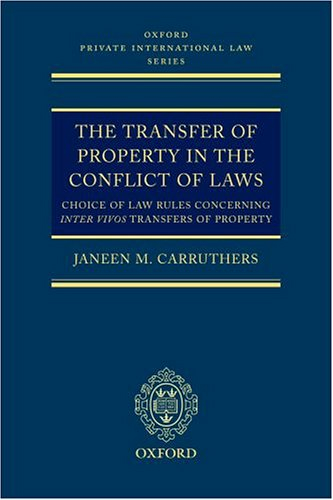
This book provides a detailed and up-to-date exposition of English and Scottish rules of choice of law in inter vivos transfers of property. It traces the development of the lex situs rule, and its application to inter vivos dealings with immovable property, tangible movable property (including the special case of cultural property), and intangible movable property (including indirectly held securities).
The author offers two alternative models of suggested choice of law rules in property, introducing a greater degree of flexibility into choice of law rules in property, and formulates even-handed solutions to the complex problems of space, time and policy which arise in this area of the conflict of laws.